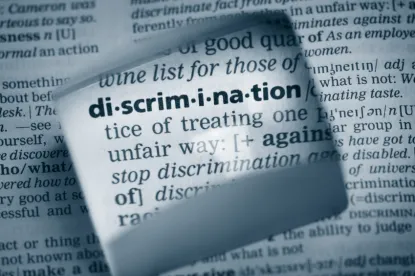In Jones v. Johnson, No. 18-2252 (January 9, 2020), the Sixth Circuit Court of Appeals considered the discoverability of comparator information in a case involving an allegation that an employer failed to promote an employee. The court reversed a district court’s decision in favor of an employer on the grounds that it had improperly limited the scope of discovery. The Sixth Circuit’s decision highlights that documentary evidence reviewed by decision-makers and/or about which they had knowledge will likely be found to be discoverable, and depositions of decision-makers and those who provided information to the decisions-makers during the hiring process will likely be found to be permissible.
Background
Kyisha Jones, a Department of Homeland Security (DHS) employee, filed a lawsuit alleging that her employer had discriminated against her on the basis of her gender by failing to promote her. Specifically, she claimed that her employer passed her over for promotions in June 2011 and August 2011.
DHS’s port director, who was Jones’s fourth-line supervisor, recommended the promotion of four male employees and one female employee in a June 2011 round of promotions, and one male employee and one female employee in an August 2011 round of promotions. In doing so, the port director reviewed the job selection file, consisting of a list of candidates he received from the human resources department, their resumes, and their applications. He also spoke with his assistant port directors, but not with the first-line supervisors of the candidates. He, however, did not conduct any interviews with and did not review the personnel files of the candidates.
The port director testified that he had not recommended Jones for a promotion at that time because she did not always work well with her supervisors and had previously been suspended for five days for failure to follow a supervisor’s order. Jones contended that one of the male employees who was promoted had a similar disciplinary record, and, thus, DHS’s reason for not promoting her was a pretext for unlawful discrimination.
DHS filed a motion for summary judgment, and Jones requested that the court allow her to conduct discovery. The district court:
-
permitted Jones to depose the port director, but limited the scope of his deposition to his reasons for rejecting Jones’s application for promotion, precluding inquiry into the disciplinary record of the male employee Jones contends had a similar disciplinary record;
-
permitted discovery of the job selection file the port director reviewed, but denied Jones’s request to depose and obtain the personnel files of the five male comparators;
-
denied Jones’s request to depose a human resources representative regarding the selection process, the severity of offenses, the number of years disciplinary actions remain in personnel records, and the number of years disciplinary actions are used in staffing decisions; and
-
denied Jones’s request to depose her first-line supervisors.
Thereafter, DHS renewed its motion for summary judgment, and Jones renewed her request to conduct some of the discovery the district court had previously denied her, and added a new request to take the depositions of the assistant port directors.
The district court granted DHS’s motion for summary judgment, concluding that Jones had failed to establish that the port director’s reasons for not promoting her were a pretext for gender discrimination. Jones appealed.
The Court’s Analysis
The Sixth Circuit reversed the district court’s decision in DHS’s favor and remanded the case, finding the district court had improperly limited the scope of discovery. According to the Sixth Circuit, the district court should have permitted Jones to:
-
obtain the performance reviews and disciplinary records of the male comparators, but not to depose them;
-
depose a human resources representative;
-
depose her first-line supervisors; and
-
depose the assistant port directors.
Notably, in a partial dissent, one of the circuit court judges, applying the “relevant and proportional to the needs of the case” standard set forth in Federal Rule of Civil Procedure 26(b)(1), noted that the district court did not abuse its discretion in:
-
denying the request for the comparator personnel files as the port director did not rely on the personnel files;
-
denying the request to depose a human resources representative one level removed from the decision-making process about topics for which there was already sworn testimony;
-
denying the request to depose first-line supervisors given that the port director did not speak with them, and DHS acknowledged that Jones performed well in her current role; and
-
denying Jones’ “late-in-the-day request” to depose the assistant port directors as the timing of the request undermined its necessity.
Key Takeaways
When conducting discovery in federal court, it is important to remember the relevance and proportionality standard provided for in the Federal Rules of Civil Procedure. In the failure-to-promote context, depending on the facts of the particular case, the following types of information may be discoverable: (1) documentary evidence reviewed by the decision-makers; (2) deposition testimony from decision-makers and those from whom the decision-maker obtained information during the decision-making process; (3) if discipline or performance are considerations in the decision-making process, discovery related to the discipline or performance of comparators; and (4) policies and procedures relating to promotions and/or the selection process and possible deposition testimony related to the same.





 />i
/>i

